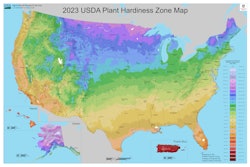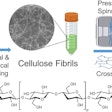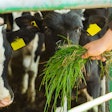
Movements to ban some animal production systems or production of certain types of protein have come from both ends of the U.S. political spectrum.
This includes California’s Proposition 12, which establishes minimum space requirements based on square feet for breeding pigs, veal calves and egg-laying hens, and bans the sale of meat and eggs from those animals when they are raised in a way that does not comply with the minimum requirements. Massachusetts’ Prevent Cruelty to Farm Animal Act, also known as Question 3, is similar.
Also recently, several states, including Alabama, Arizona, Florida and Tennessee, have proposed or passed legislation to ban the production of cell-cultured or lab-grown meat.
Neither of these approaches is good for consumers or the agriculture industry, according to American Feed Industry Association (AFIA) President and CEO Constance Cullman, who commented on the topic recently at AFIA’s Purchasing and Ingredient Suppliers Conference in San Antonio.
“It's difficult to fight fire with fire,” she said. “And we really cannot do that because bans on cell-cultured meats in the states are doing nothing but strengthening that legal record for (activist groups) to continue to look for bans on products that we care about and that we want to see available for consumers to choose.”
Ultimately, she said – and other speakers at the event echoed – bans on certain production practices aim to get people to reduce or eliminate consumption of meat products.
“It isn’t about the animal welfare, it’s about the reduction of consumer preferences for animal protein and products from animals,” Cullman said.
To really give consumers options and ways to reflect their values, food companies need to be more open and expressive in showing the positive aspects of their products, instead of what those products lack.
“People are trying to reflect their values in what they purchase and they're doing that with the only labels they have, which are absence labels, and absence labels aren't necessarily reflective of what their values are, but it's the only thing they have,” Cullman said.
It’s time for food companies to tell their stories to consumers so the two can better understand and serve each other.
“Can we, as a food sector supply chain, begin to put the mechanisms and technologies in place that allow us to be able to communicate to the consumer what we do and the values we have in the animal food industry that actually reflect the values they’re looking for?” Cullman said.
















